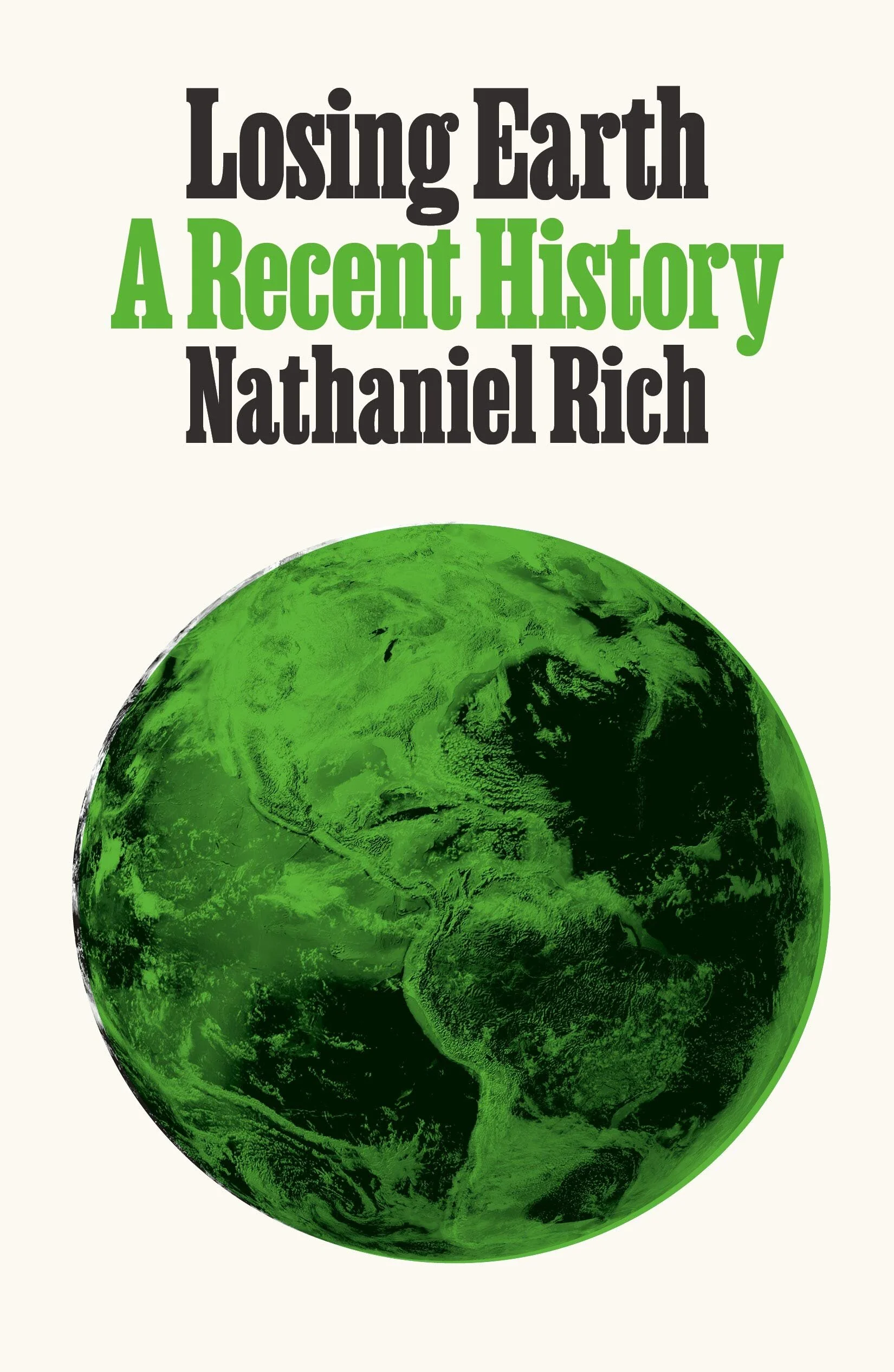Rating: 9
Losing Earth: A Recent History
Nathaniel Rich | 2019
When a dramatic feature film is eventually made about the climate crisis and humanity’s response, Losing Earth could easily serve as the screenplay for the opening scenes in which a handful of scientists and politicians scramble to alert everyone of an impending disaster. Set between 1979 and 1989, Rich recounts the events that began modern climate change science, politics, and denial in the United States. Although I recognized many of the characters (Al Gore, James Hansen, Rafe Pomerance) I had little idea of the pivotal roles they played during this critical 10-year period when US legislators came so close to embracing carbon emission reductions but instead buried their heads in the sand. Rich perhaps makes the best argument I’ve seen for approaching climate change debates with a moral perspective, which he believes is the only way to defeat denialists and combatants. If you’re interested in climate change policy or hoping to see how scientists and politicians can clash over important issues, then Losing Earth is a must.
“Nearly every conversation that we have in 2019 about climate change was being held in 1979.”
“William Nordhaus, upon winning the Nobel Prize in 2018, made the same point: ‘The problem is political, rather than one of economics or feasibility.’ We can trust the technology and the economics. It’s harder to trust human behavior.”
“The denialist does not care about winning a war of ideas, only about avoiding the appearance of amorality. If the science is uncertain, inaction is blameless.”
